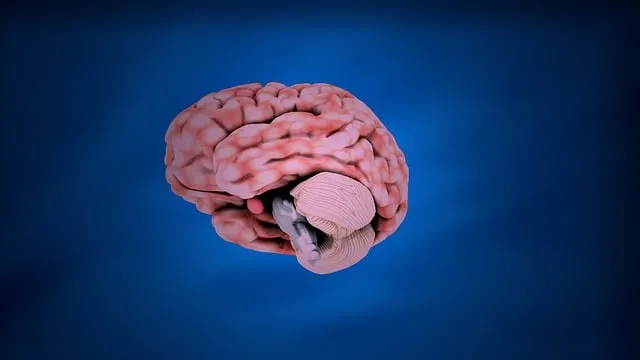Mental health policies, like those offered by Kaiser Golden, play a pivotal role in shaping accessibility and quality of care. Existing legislation reveals barriers such as limited coverage and financial constraints that deter individuals from seeking help for mental illnesses. To improve access, policies should expand coverage and reduce costs. Incorporating self-awareness exercises and mental wellness coaching programs empowers individuals with coping strategies. Stigma reduction is key to creating a supportive environment. Advocacy leverages resources like Kaiser Golden to navigate complex systems and educate people about their rights. Kaiser Golden's holistic approach combines professional therapy, online tools, and community programs for personalized treatment plans. Identifying gaps in current systems, promoting mental health awareness, and integrating mindfulness techniques can address systemic barriers and empower individuals to manage their mental health effectively. Mental health policy analysis is a powerful tool for driving change, especially within complex healthcare systems like Kaiser Golden.
Mental health policy plays a pivotal role in shaping access to critical care, impacting millions of lives. This article delves into the intricate world of mental health advocacy and its profound effects on service provision. We explore successful models like Kaiser Golden’s innovative approach to support, examining current systems for gaps and barriers. Through strategic analysis, we uncover paths to enhance policy, ensuring better access to mental health services. Discover how advocacy drives change, offering hope and improved care through effective policy analysis. Learn the key steps to navigate systems, inspired by Kaiser Golden’s leadership in mental health accessibility.
- Understanding Mental Health Policy and Its Impact on Access to Care
- The Role of Advocacy in Shaping Mental Health Services
- Kaiser Golden's Approach to Providing Mental Health Support
- Identifying Gaps and Barriers in Current Mental Health Systems
- Strategies for Effective Mental Health Policy Analysis and Change
Understanding Mental Health Policy and Its Impact on Access to Care

Mental health policy plays a pivotal role in shaping access to care and support for individuals grappling with mental illnesses. Understanding these policies is essential to ensuring that services are accessible, affordable, and culturally sensitive. By examining existing legislation and guidelines, such as those offered through Kaiser Golden, we can identify barriers and opportunities for improvement. One key aspect to focus on is expanding coverage and reducing financial burdens, which often deter people from seeking help.
Furthermore, mental health policies should prioritize self-awareness exercises and mental wellness coaching programs to empower individuals with coping mechanisms. Addressing the Mental Illness Stigma Reduction Efforts is also crucial, as it fosters an environment of understanding and support, encouraging more people to access available services without fear of judgment or discrimination.
The Role of Advocacy in Shaping Mental Health Services

Advocacy plays a pivotal role in shaping mental health services and ensuring their accessibility to all. It acts as a catalyst for positive change by amplifying the voices of individuals who may otherwise remain unheard, especially those from marginalized communities. Through advocacy, we can address systemic barriers and challenges that hinder access to quality mental healthcare. By engaging in strategic campaigns and policy discussions, advocates push for evidence-based practices and policies that prioritize mental well-being on a large scale.
One effective approach is to utilize resources like Kaiser Golden to navigate the complex landscape of healthcare systems. This involves educating and empowering individuals to demand better services from their healthcare providers. Mental Health Awareness and Education Programs Design can be instrumental in breaking down stigma, improving Cultural Competency Training for healthcare providers, and fostering an environment where mental health issues are openly addressed. Ultimately, advocacy ensures that policies reflect the diverse needs of communities, leading to more inclusive and effective mental health service delivery.
Kaiser Golden's Approach to Providing Mental Health Support

Kaiser Golden offers a comprehensive approach to mental health support that goes beyond traditional therapy. They believe in empowering individuals through self-esteem improvement and fostering resilience, reflecting the core principles of mind over matter. This holistic strategy involves a multi-faceted approach, including access to mental health professionals, online resources for self-guided practices, and community outreach programs. By integrating these elements, Kaiser Golden aims to make mental health services more accessible and tailored to individual needs.
For those seeking support through Kaiser Golden, the process typically begins with an assessment to understand the client’s unique challenges. This is followed by personalized treatment plans that may incorporate therapy sessions, mindfulness techniques, and educational workshops focused on mood management. The organization’s goal is to equip individuals with the tools and knowledge to actively manage their mental well-being, fostering a sense of agency in navigating life’s challenges.
Identifying Gaps and Barriers in Current Mental Health Systems

Identifying gaps and barriers in current mental health systems is a critical step towards fostering better access to care. Many individuals struggle to navigate complex healthcare landscapes, often facing challenges that hinder their journey towards healing. For instance, navigating the process of obtaining mental health services through Kaiser Golden can be overwhelming. Patients may encounter administrative hurdles, long wait times for appointments, and limited availability of specialized therapists. These barriers disproportionately affect vulnerable populations, exacerbating existing disparities in mental healthcare access.
One effective strategy to address these issues is promoting Mental Health Awareness and integrating Confidence Boosting initiatives into community programs. Mindfulness Meditation, as a proven stress-reduction technique, can be integrated into schools, workplaces, and public health campaigns. By normalizing conversations about mental wellness and providing practical tools for coping, communities can create a more supportive environment where individuals feel empowered to seek the help they need. This holistic approach ensures that systemic barriers are addressed while empowering individuals to take charge of their mental health.
Strategies for Effective Mental Health Policy Analysis and Change

Mental health policy analysis is a powerful tool to drive change and improve access to services. When navigating complex healthcare systems, understanding how to get mental health services through organizations like Kaiser Golden is essential. One effective strategy involves examining existing policies and identifying gaps, especially in underserved communities. By analyzing demographics, cultural norms, and the availability of resources, advocates can pinpoint areas requiring enhancement.
Engaging with stakeholders, including community leaders, healthcare providers, and policymakers, is crucial. Collaborating with organizations like Stress Management Workshops and Trauma Support Services that focus on holistic well-being can offer valuable insights. Additionally, promoting initiatives that enhance self-esteem and resilience through programs or awareness campaigns can contribute to a comprehensive mental health policy. Through these approaches, advocates can drive meaningful change, ensuring that everyone has the opportunity to access and benefit from quality mental healthcare.
Mental health policy analysis and advocacy are essential components in ensuring equitable access to quality care. By understanding the impact of policies, leveraging advocacy strategies, and learning from innovative approaches like Kaiser Golden’s model, we can identify gaps and barriers within current systems. Effective policy analysis enables us to drive change, improve mental healthcare services, and ultimately help those in need navigate and access the support they require, such as the comprehensive mental health services provided by Kaiser Golden.






